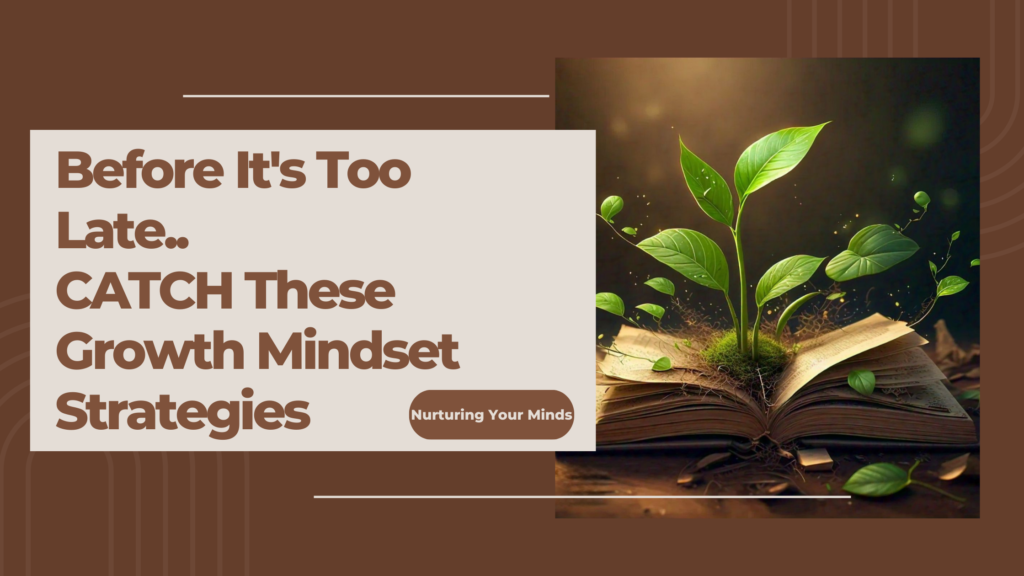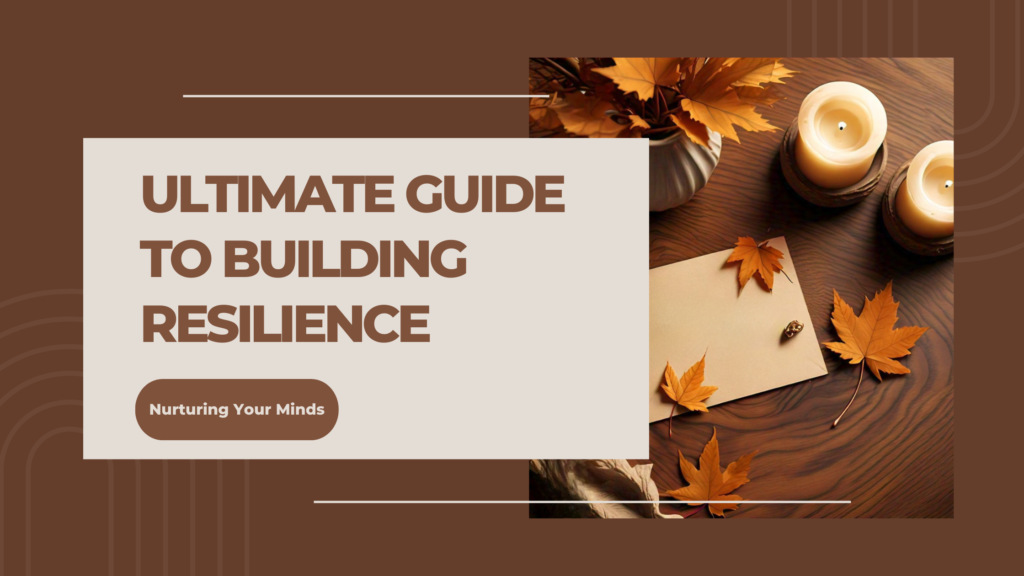Have you ever wondered why some people seem to thrive on challenges while others crumble? The secret lies in the mind — specifically, in the incredible power of a growth mindset.
Introduction
Imagine a world where your potential is limitless, where setbacks are mere stepping stones, and where your abilities and intelligence can be developed through dedication and hard work. This isn’t a dreamlike vision; it’s the essence of a growth mindset. Coined by psychologist Carol Dweck, a growth mindset is the belief that your basic qualities are things you can cultivate through effort. In contrast, a fixed mindset assumes that our character, intelligence, and creative ability are static givens which we can’t change in any meaningful way.
The Science Behind Growth Mindset
Psychology tells us that our mindset plays a crucial role in how we perceive challenges and handle failures. The neural pathways in our brain are not fixed; they can be molded and strengthened through learning and experience. This phenomenon, known as neuroplasticity, underscores the potential for growth and change in our mental capabilities. When we adopt a growth mindset, we actively engage in practices that promote brain development and resilience.
The Psychological Roots of a Growth Mindset
The development of a growth mindset is deeply rooted in cognitive and social psychology. Carol Dweck’s research highlights how our beliefs about our abilities can influence our behavior and success. Here’s a closer look at the psychological principles behind a growth mindset:
- Neuroplasticity: The brain’s ability to reorganize itself by forming new neural connections. This scientific evidence supports the idea that we can learn and grow at any age.
- Self-efficacy: Coined by psychologist Albert Bandura, self-efficacy refers to one’s belief in their ability to succeed in specific situations. A growth mindset enhances self-efficacy, fostering a greater willingness to take on challenges.
- Attribution Theory: This theory explains how individuals attribute causes to events. Those with a growth mindset attribute success to effort and strategy, while those with a fixed mindset attribute it to innate ability.
Characteristics of a Growth Mindset
Individuals with a growth mindset possess certain defining characteristics:
- Embracing Challenges: They see challenges as opportunities to learn and grow, not as unconquerable obstacles.
- Persistence: They persist in the face of setbacks, understanding that effort and struggle are part of the learning process.
- Effort as a Path to Mastery: They believe that effort is essential to mastering new skills and knowledge.
- Learning from Criticism: They view constructive criticism as a valuable feedback mechanism for improvement.
- Inspiration from Others’ Success: They are inspired by and learn from the success of others, rather than feeling threatened.
The Impact of a Fixed Mindset
Conversely, a fixed mindset can be detrimental to personal and professional development. People with a fixed mindset believe that their abilities and intelligence are static, which can lead to:
- Avoiding Challenges: They tend to avoid challenges for fear of failure.
- Giving Up Easily: They may give up easily when faced with obstacles, seeing them as reflections of their limitations.
- Seeing Effort as Fruitless: They may view effort as pointless if they believe their abilities are fixed.
- Ignoring Useful Feedback: They might disregard feedback that could help them improve, viewing it as a critique of their inherent abilities.
- Feeling Threatened by Others’ Success: They may feel threatened or envious of others’ achievements, seeing them as reminders of their own perceived limitations.

Cultivating a Growth Mindset
Shifting from a fixed to a growth mindset involves conscious effort and practice. Here are practical strategies to develop and maintain a growth mindset:
- Acknowledge and Embrace Imperfection: Recognize that everyone has strengths and weaknesses. Embrace your imperfections as areas for growth.
- View Challenges as Opportunities: Reframe challenges as chances to learn something new. Approach them with curiosity and a willingness to learn.
- Replace “Failing” with “Learning”: Instead of viewing failures as defeats, see them as valuable lessons. Analyze what went wrong and how you can improve.
- Celebrate Effort, Not Just Results: Focus on the effort you put into tasks, not just the outcomes. Recognize and reward persistence and hard work.
- Cultivate a Love for Learning: Stay curious and open to new experiences. Continuously seek out knowledge and skill development.
- Be Inspired by Others: Instead of feeling threatened by others’ success, let it inspire you. Learn from their journeys and achievements.
- Use Positive Language: Be mindful of the language you use. Replace fixed mindset statements like “I can’t do this” with growth mindset alternatives like “I can’t do this yet.”
- Surround Yourself with Growth-Minded Individuals: Seek out relationships with people who exhibit a growth mindset. Surrounding yourself with positive, growth-oriented individuals can inspire and motivate you to adopt similar attitudes. Engage in discussions that challenge your thinking and expand your horizons.
- Visualize Success and Practice Gratitude: Visualize your success and the steps you need to take to achieve it. Practicing gratitude can also shift your focus from what you lack to what you have achieved. Reflect on your growth journey and appreciate the progress you’ve made.
- Practice Self-Compassion: Be kind to yourself when you encounter setbacks. Self-compassion involves recognizing that failure is part of the human experience and treating yourself with the same kindness you would offer a friend. Replace self-criticism with self-encouragement.
Growth Mindset Workbooks can be a good source of practicing it in an organized and more efficient manner.
The Role of Self-Reflection
Self-reflection is a powerful tool in developing a growth mindset. Regularly taking time to reflect on your experiences, thoughts, and behaviors can help you identify areas for improvement and track your progress. Consider keeping a growth mindset journal where you document challenges, efforts, outcomes, and what you’ve learned from each experience.
The Power of “Yet”
One of the most transformative aspects of a growth mindset is the power of the word “yet.” Adding “yet” to statements about your abilities or achievements can shift your perspective from one of limitation to one of potential. For example:
- “I don’t understand this concept” becomes “I don’t understand this concept yet.”
- “I can’t play this piece of music” becomes “I can’t play this piece of music yet.”
- “I’m not good at public speaking” becomes “I’m not good at public speaking yet.”
This simple addition emphasizes the potential for growth and improvement over time.
Applying a Growth Mindset in Different Areas of Life
A growth mindset can be applied to various areas of life, including education, work, relationships, and personal development.
Not practicing for the achievement of growth mindset can leave you with the fixed mindset leading towards so much stress in life ahead. But if you’re already experiencing any kind of such stress, HERE is my detailed and therapeutic De-Stress Nurturing Program, in order to cope with your stressors and manage daily life challenges in a more effective manner.
Education
In an educational context, students with a growth mindset are more likely to embrace learning, persevere through challenges, and achieve higher academic success.
Teachers can foster a growth mindset by:
- Encouraging a love of learning.
- Praising effort, not just results.
- Providing constructive feedback.
- Creating a supportive learning environment where mistakes are seen as learning opportunities.
Work
In the workplace, a growth mindset can lead to increased innovation, productivity, and job satisfaction. Employees with a growth mindset are more likely to seek out new challenges, collaborate effectively, and continuously improve their skills.
Employers can promote a growth mindset by:
- Offering professional development opportunities.
- Recognizing and rewarding effort and improvement.
- Encouraging risk-taking and creative problem-solving.
- Providing regular feedback and support.
Relationships
A growth mindset can also enhance personal relationships. Viewing relationships as dynamic and evolving rather than static can help individuals navigate conflicts, communicate effectively, and build stronger connections.
Key practices include:
- Emphasizing open communication and active listening.
- Viewing conflicts as opportunities for growth and understanding.
- Appreciating and supporting each other’s personal development.
Personal Development
On a personal level, a growth mindset fosters resilience, adaptability, and a lifelong love for learning. It encourages individuals to step out of their comfort zones, set ambitious goals, and pursue their passions.
Strategies for personal development include:
- Setting realistic and challenging goals.
- Embracing new experiences and stepping out of your comfort zone.
- Seeking out feedback and using it constructively.
- Maintaining a positive and optimistic outlook.
Overcoming Obstacles to a Growth Mindset
Developing a growth mindset is not without its challenges. Common obstacles include:
- Fear of Failure: Overcoming the fear of failure requires a shift in perspective. View failures as learning opportunities rather than reflections of your abilities.
- Negative Self-Talk: Challenge and reframe negative self-talk. Replace it with positive affirmations and growth-oriented statements. For example, instead of saying or thinking, “I am useless“, think and speak “I am worthy enough to achieve high skies in life“.
- Lack of Support: Surround yourself with supportive individuals who encourage your growth and development. Seek out mentors, coaches, or communities that foster a growth mindset.
- Comfort Zone: Stepping out of your comfort zone can be daunting, but it’s essential for growth. Start with small, manageable steps and gradually take on bigger challenges.
The Long-Term Benefits of a Growth Mindset
Cultivating a growth mindset can lead to numerous long-term benefits, including:
- Increased Resilience: A growth mindset enhances your ability to bounce back from setbacks and persist in the face of challenges.
- Improved Performance: Individuals with a growth mindset are more likely to achieve their goals and excel in their pursuits.
- Greater Creativity: A growth mindset fosters creativity and innovation by encouraging risk-taking and experimentation.
- Enhanced Well-Being: Embracing a growth mindset contributes to overall mental and emotional well-being by promoting a positive and proactive approach to life.
- Stronger Relationships: A growth mindset can lead to more fulfilling and supportive relationships, as individuals are more open to growth and development in themselves and others.
Conclusion
Developing a growth mindset is a transformative journey that can unlock your full potential and lead to a more fulfilling and successful life. By embracing challenges, persisting through setbacks, and continuously striving for improvement, you can cultivate a mindset that empowers you to achieve your goals and reach new heights. Remember, the path to growth is not always easy, but it is always worth it. So, take the first step today and start cultivating a growth mindset, your future self will thank you.
Start your journey today, and watch as your potential unfolds before your very eyes!



